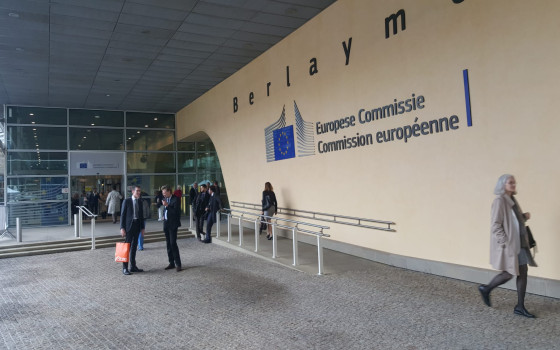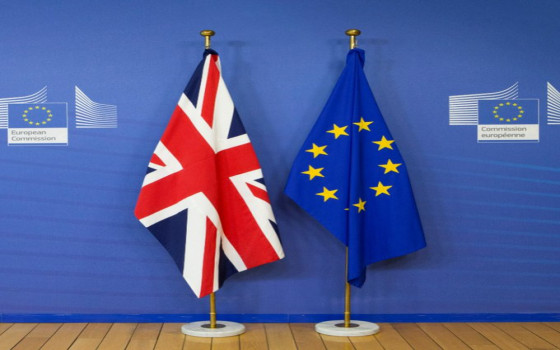
The European Union may subject Microsoft to investigation regarding controls to prevent counterfeiting technology. There is a deadline until May 27 to avoid a large fine

- Europe and Arabs
- Saturday , 18 May 2024 13:9 PM GMT
Brussels: Europe and the Arabs
The European Commission said in Brussels that it will require Microsoft to provide information under the Digital Services Act about the risks of generative artificial intelligence on the search engine Bing.
“The Commission intensifies its enforcement action against Microsoft: following an initial request for information sent on March 14 regarding specific risks arising from Bing’s generative AI features, in particular “Copilot in Bing” and “Image Creator,” a statement issued in Brussels said. by Designer”, the company has now had until May 27 to submit the required information to the Commission.
With the legally binding information request issued Friday, the Commission is asking Bing to provide documents and internal data that were not disclosed in Bing's previous response. The request for information is based on suspicion that Bing may have violated the DSA due to risks associated with generative artificial intelligence, such as so-called “hallucinations,” the viral spread of deepfakes, as well as automated manipulation of services that could mislead voters. . Under the DSA, designated services, including Bing, must conduct an appropriate risk assessment and adopt relevant risk mitigation measures (Articles 34 and 35 of the DSA). Generative AI is one of the risks identified by the Commission in its guidance on the integrity of electoral processes, particularly in relation to the upcoming European Parliament elections in June.
If Bing fails to respond within the deadline, the Commission may impose fines of up to 1% of the provider's gross annual income or global turnover and periodic penalties of up to 5% of the provider's average daily income or global annual turnover.
The Commission can also impose fines of up to 1% of a service provider's gross annual income or worldwide turnover for incorrect, incomplete or misleading information in response to a request for information.
Having been classified as a very large online search engine, Bing must comply with the full set of provisions offered by the DSA. In this particular case, the Commission considers that suspected violations of the DRA may pose risks associated with civil discourse and electoral processes. Pursuant to Section 67(3) of the DSA, the Commission has the power to request additional information, by decision, to Bing in relation to suspected infringements.
The information request is an investigative measure that does not constitute a prejudgment on possible additional steps that the Commission may or may not decide to take. Based on evaluation of responses, you will evaluate next steps. This may necessitate the initiation of formal proceedings, pursuant to Section 66 of the Daily Residence Act.
According to media reports, Microsoft's Bing search engine faces a possible investigation by the European Union into how it reduces threats associated with its artificial intelligence, including fake information and the rapid spread of deepfake technology.
The European Commission said - in a statement on Friday - that it suspects that the artificial intelligence-based image generator and Microsoft's chatbot; They violated the bloc's content moderation law, the Digital Services Act, due to misleading information.
European magazine Politico reported that while a formal investigation had not been opened, EU executives said the search engine may have failed to respect requirements for assessing and mitigating risks associated with new AI features. These risks include so-called "hallucinations" - which is when an AI tool creates false information - the spread of false and misleading images, and automated manipulation of services that can mislead voters.
The Commission ordered the company to send additional internal documents and data on potential risks posed by the AI-based image generator and chatbot by May 27 after it had previously failed to do so, the European Commission said. Microsoft did not provide sufficient information about “specific risks” associated with Bing’s generative AI features, including its CoPilot chatbot and Image Creator, after a request in March, according to the commission.
The European Commission supervises Bing as a very large search engine, because more than 45 million people use it in the European Union. Failure to respect the Digital Services Law can result in fines of up to 6 percent of a company's global revenue.
A Microsoft spokesperson said: “We have fully cooperated with the European Commission as part of the voluntary request for information and remain committed to answering their questions and sharing more about our approach to digital safety and compliance with the Digital Services Act.”












No Comments Found